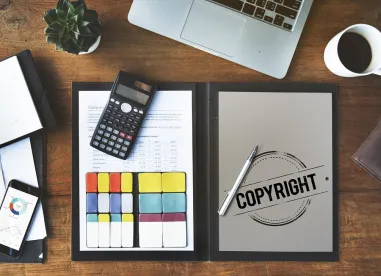In a unanimous decision, the Supreme Court of the United States resolved a longstanding circuit split on whether a copyright claimant must have registered with US Copyright Office before filing an infringement action in federal court. The Supreme Court held that copyright registration occurs—and thus an infringement action can be brought—only after the Copyright Office registers the copyright. Fourth Estate v. Wall-Street.com, Case No. 17-571 (US March 4, 2019) (Ginsburg, Justice).
The Copyright Act states that “no civil action for infringement of the copyright in any United States work shall be instituted until . . . registration of the copyright claim has been made[.]” 17 USC § 411. Despite this straightforward language, courts have been divided on the interpretation of “registration.” Some courts, such as the 11th Circuit, held that the statute means that the Copyright Office must register the copyright before the copyright owner can commence a lawsuit. Other courts, such as the Ninth Circuit, adopted what is commonly referred to as the application approach, ruling that a copyright owner need only submit an application, deposit his or her work, and pay the necessary fees to the US Copyright Office before the copyright owner may file an infringement lawsuit. District courts outside of these circuits were similarly divided on this issue.
In this case, Fourth Estate sued Wall-Street.com and its owner, Jerrold Burden (collectively, Wall-Street), for copyright infringement based on Wall-Street’s failure to comply with the terms of the parties’ license agreement. Fourth Estate alleged that Wall-Street had failed to remove Fourth Estate’s articles from Wall-Street’s website, which the license agreement required Wall-Street to do after the license was cancelled. At the time it filed its lawsuit, Fourth Estate had filed applications to register its copyrights in these articles, but the Copyright Office had not yet registered them. The district court dismissed Fourth Estate’s complaint because of Fourth Estate’s failure to comply with § 411. Fourth Estate appealed to the 11th Circuit, which affirmed the district court’s decision. The Supreme Court accepted certiorari and affirmed the 11th Circuit’s decision.
The issue presented was whether “registration . . . has been made” when the copyright holder delivers the required application, deposit and fee to the Copyright Office, as the Ninth Circuit had held, or only once the Copyright Office registers the copyright, as the 11th Circuit had held. Reviewing the language of § 411, Justice Ginsburg explained that while an author has rights in his or her work immediately upon creation, and is entitled to recover for infringements both before and after registration, the author must satisfy the registration requirement of § 411 before instituting a copyright infringement action. The Court equated the need for registration to an “administrative exhaustion requirement.” Justice Ginsburg recognized that the Copyright Act does have limited exceptions to this rule, such as a copyright owner who is preparing to distribute a work of a type vulnerable to predistribution infringement or a live broadcast, but even under those exceptions, the Court reasoned, the author must eventually obtain registration of the copyright.
In resolving the circuit split, the Supreme Court found that the “registration approach” was the “only satisfactory reading of § 411(a)’s text.” The Court reasoned that the “application approach” would render language—namely, that a copyright owner could file an infringement lawsuit after registration had been refused—superfluous. “Registration” has the same meaning throughout the Copyright Act: action taken by the Register of Copyrights (i.e., the Copyright Office). The application approach is directly at odds with this meaning, effectively removing the Copyright Office from the equation.
Fourth Estate argued that “registration” meant “submission of a completed application,” based in part on the use of “make” (“make registration”) or “made” (“registration has been made”) in § 411(a). The use of “make” or “made” with “registration,” Fourth Estate contended, referred to actions taken by the applicant, not the Register. The Supreme Court disagreed, explaining that “registration” means “registration,” and noting that Congress has amended the Copyright Act several times since § 411(a) was enacted in 1976 and has rejected attempts to remove the registration requirement in this provision.
While Justice Ginsburg sympathized with the potential problems the registration approach may cause due to delays at the Copyright Office, she said that only “Congress can alleviate” those problems; it is not the job of the courts to try to “cure” them.
Practice Note: In the wake of this opinion, the Copyright Office likely will see an increase in the number of expedited applications and, given the current lag, will continue to struggle to promptly review applications unless further resources and more efficient processes become available.



 />i
/>i

